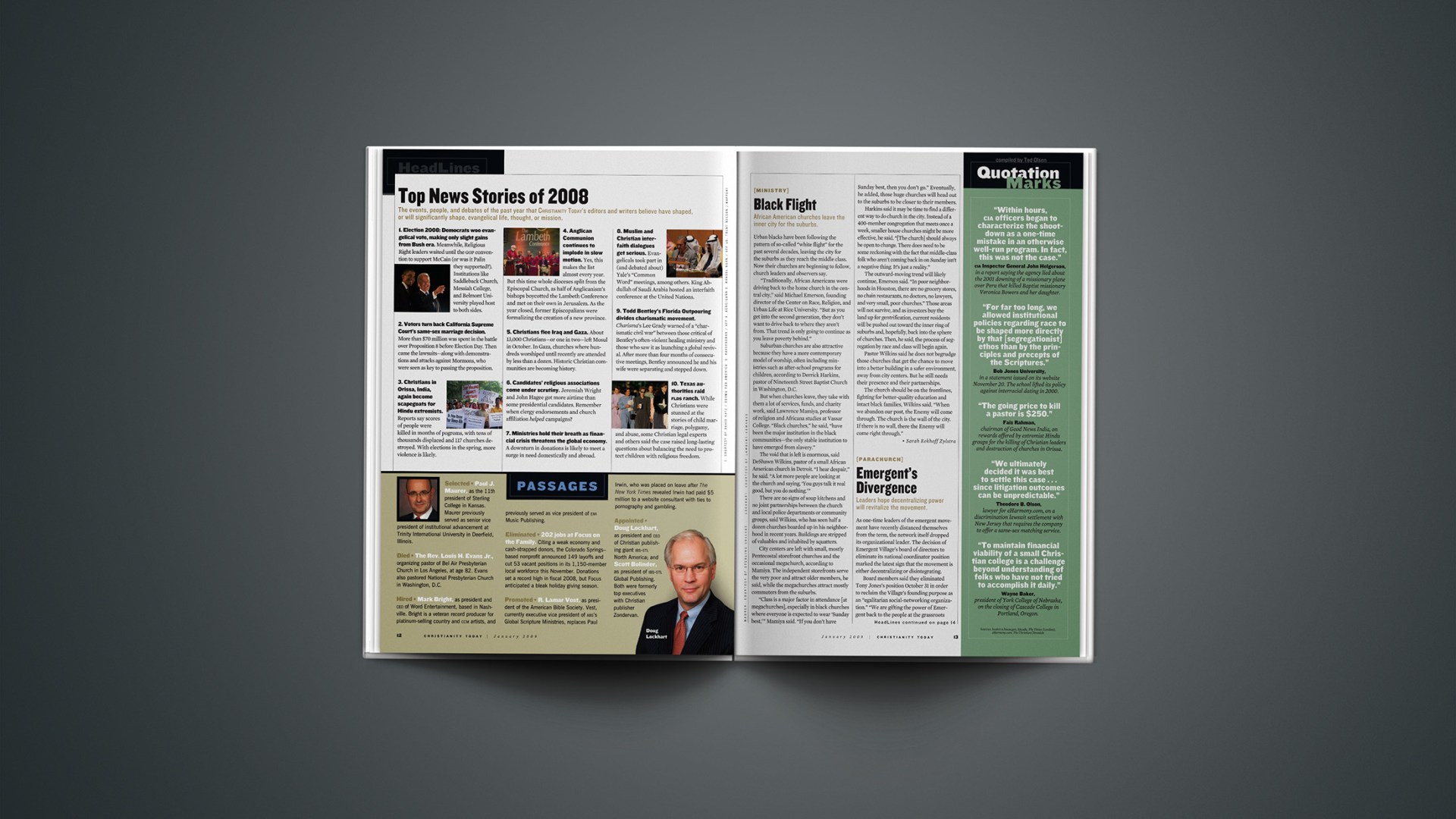As one-time leaders of the emergent movement have recently distanced themselves from the term, the network itself dropped its organizational leader. The decision of Emergent Village’s board of directors to eliminate its national coordinator position marked the latest sign that the movement is either decentralizing or disintegrating.
Board members said they eliminated Tony Jones’s position October 31 in order to reclaim the Village’s founding purpose as an “egalitarian social-networking organization.” “We are gifting the power of Emergent back to the people at the grassroots level of the conversation,” said Jones.
The decision leaves the future structure of emergent leadership unclear. “We know how to run traditional organizations,” said Brian McLaren, a board member and one of the group’s most prominent pastors. “We don’t know how to run networks. [But we know] there’s a place for leadership in networks.” McLaren says there have been ongoing questions about the label itself. “For many people, the name emergent has allowed them to remain in the evangelical world,” he said. For others outside the conversation, he admitted, the name has become an epithet for theological heresy or cultural trendiness.
Even some within the network are beginning to avoid emergent vocabulary. Prominent blogger Andrew Jones (known online as “Tall Skinny Kiwi”) has dropped the emergent label from his conversations. “The word no longer communicates what I want it to,” he said, “so even though I will still be in support of emerging church ventures … I will no longer be using the word for myself and the ministries that we support.”
Additionally, several thinkers once associated with emergent, including pastor Dan Kimball and professor Scot McKnight, have formed a new network provisionally called Origins, dedicated to “friends, pioneers, innovators, and catalysts who want to dream and work for the gospel together rather than alone.”
Nevertheless, the Emergent Village board remains optimistic about the future. McLaren pointed to groups such as Presbymergent and Anglimergent as examples of conversations that are taking place outside of Emergent Village.
Such groups encourage John Franke, professor of theology at Biblical Seminary and Emergent Village member. “We never thought we were the conversation,” he said. “We’re just a particular node of the wider conversation.”
Now that he has stepped down, Jones is hopeful that critics and proponents alike will be less likely to apply the views of a few prominent speakers and writers to everyone who identifies as emergent. “The best-case scenario,” he said, “is that stakeholders will step into leadership roles and feel a great deal of ownership in the network.”
Emergent leaders recognize the dangers of decentralization. Networking, a central emergent value, may become difficult in the absence of an obvious contact person. And some have concern that ambitious leaders might try to co-opt the network.
But Jones hopes decentralizing American emergent networks will give participants worldwide, who lack access to book publishing and other resources enjoyed by their American counterparts, more freedom to express themselves. “Any time you can dethrone an overeducated, loud, brash, white man,” he said, “people just feel more openness for their own voice to be heard.”
Copyright © 2009 Christianity Today. Click for reprint information.
Related Elsewhere:
The Emergent Village has more on its website about its decision to eliminate the national coordinator position.
Christianity Today has a special section on the emergence of the emergent.










